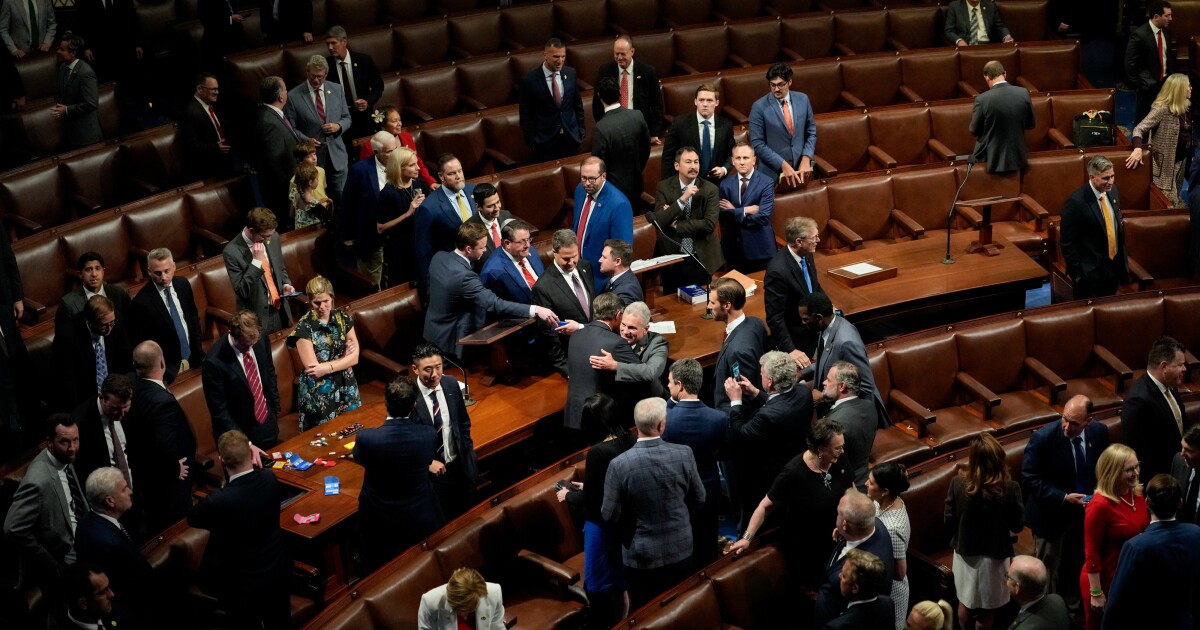
WASHINGTON — The House narrowly passed a
The bill passed in a 218-214 vote, mostly along party lines. Reps. Thomas Massie of Kentucky, a fiscal hawk, and Brian Fitzpatrick of Pennsylvania, a vulnerable GOP lawmaker in the midterms, were the only Republican holdouts who voted nay.
Republicans voted on the bill after all-night deliberations aimed at placating both the party's fiscal hawks — who complain that the bill will add trillions to the budget in the next decade — and vulnerable Republicans who fear that the bill's deep cuts to Medicaid will embolden Democratic challengers in midterm elections next year.
But Republican leadership worked overnight to iron out those differences Wednesday evening and into Thursday morning. House lawmakers voted 219-213 to allow the bill to come up for debate early Thursday morning.
Before the measure could proceed for a full vote on the House floor, House Minority Leader Hakeem Jeffries, D-N.Y., spoke about the megabill for over eight-and-a-half hours, breaking the previous record for longest floor speech set by former House Speaker Kevin McCarthy, R-Calif., in 2021.
The megabill, unusually, touches on a number of
But this spending bill introduces a new method of controlling the funding of the Consumer Financial Protection Bureau. The megabill caps the amount of funding that the CFPB can receive from the Federal Reserve's operating budget at 6.5% — down from 12% previously — representing a 46% reduction in the bureau's maximum funding level.
That reduction is still less severe than either the Senate Banking Committee's initial version of the bill, which zeroed out that source of funding for the bureau, or the House Financial Services Committee's version, which limited the bureau's draw to 5%. The Senate parliamentarian ruled out eliminating the Fed funding source entirely, but allowed the more modest 46% cut.
This is a new way for lawmakers to exert control over the bureau, and can likely be used by either party in the future. Future Democratic-controlled Congresses could raise that limit above 12%, and it's possible that Republican-controlled Congresses could lower that limit further, so long as the agency has the budget to fulfill its statutorily required duties.
The bill also offers bankers some big wins on the tax front. The bill extends the temporary Section 199(a) provisions established in the 2017 tax law, which allows owners of pass-through entities to deduct up to 20% of their taxable income from those entities.
Many community banks are so-called subchapter S banks, which have fewer than 75 shareholders. Bank groups have argued that the provision helps keep community bank taxes in line with the corporate tax rate.
It also incorporates the ACRE Act, which will give a 20% tax break for lending in rural areas secured by farm land or farm real estate.
Bankers have argued that ACRE would help them compete with the Farm Credit System, a government-sponsored enterprise that can access capital markets at a much lower cost.



